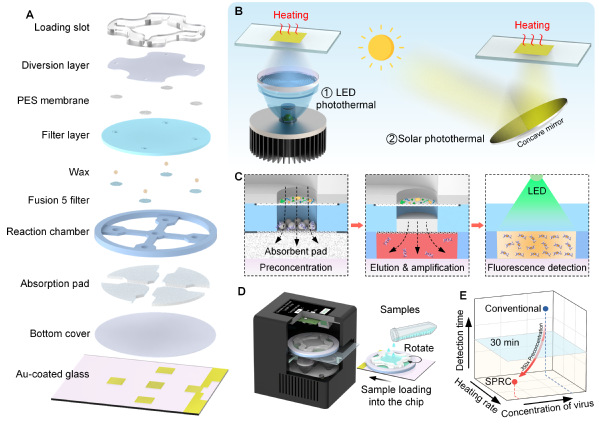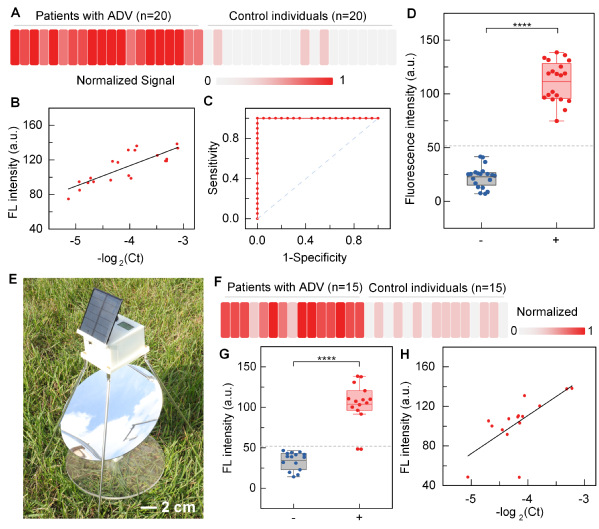Professor Yukun Ren’s team has recently developed a portable nucleic acid detection device capable of simultaneously identifying multiple diseases. The research, titled Compact Highly Sensitive Photothermal RT-LAMP Chip for Simultaneous Multidisease Detection, was published in Science Advances and selected as a highlighted paper by the journal. This research will facilitate precise and rapid on-site diagnosis of diseases within 30 minutes.
The development of this portable disease detection system with instant diagnostic capabilities is significant for public health, clinical diagnosis, response to emerging infectious diseases, and health security in resource-limited areas. However, achieving a system that combines high sensitivity, specificity, ease of use, high stability, and low cost remains a major technical challenge.
To address this issue, the team successfully created a compact, highly sensitive photothermal isothermal amplification chip that can simultaneously detect multiple diseases in various sample types. Nucleic acid amplification on the chip is driven by LED illumination or sunlight focusing, with autonomous enrichment of nucleic acids during the sample addition process, achieving a detection limit as low as 0.2 copies/μL. The study achieved rapid diagnoses of hepatitis B, hepatitis C, COVID-19, H1N1, adenovirus, and HIV through 120 clinical serum and nasopharyngeal swab samples, with the accuracy of 95% and specificity of 97.5%.
This device can be widely used in medical institutions, quarantine stations, and disease monitoring stations, aiding in rapid and precise testing.
Paper link: https://www.science.org/doi/10.1126/sciadv.adq2899



